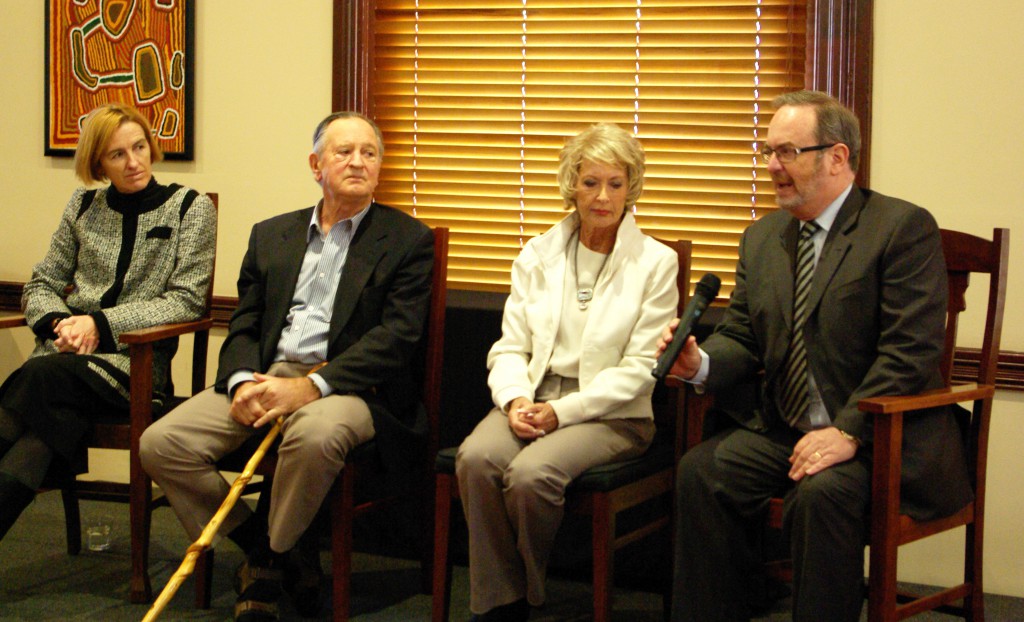
Firsthand experience of chronic pain has motivated Rossmoyne businessman Geoff Churack and his wife, Moira, to donate $1 million to enhance the knowledge of future medical students at Notre Dame University.
The money will open the doors for the university to integrate chronic pain management and rehabilitation components into its medical curriculum, believed to be the first of its kind in Australia.
“Notre Dame wants to ensure that upon graduation our medical students possess a current and comprehensive understanding of chronic pain, including strategies for management, drug use and their side effects,” Vice Chancellor Celia Hammond said.
The Churack’s generosity will fund important education and research and the appointment of an internationally-acclaimed, medical specialist at the university, Prof Hammond said.
It would also provide financial assistance for those researching chronic pain issues at Murdoch University.
After being diagnosed with chronic, neuropathic pain five years ago, Mr Churack experienced the debilitating effects the condition can inflict on all aspects of one’s life. His own independent research also gave him an awareness of the need for more effective recognition and research.
These insights motivated him to initiate the discussions with both Notre Dame and Murdoch University that have led to the establishment of The Churack Chair of Chronic Pain Education and Research.
Mr Churack said his experience had opened his eyes to the number of medical students unfamiliar with current chronic pain treatment and management procedures, and he wanted future doctors to be able to provide the most effective treatments available.
“We’re very pleased that the university is taking steps to ensure that chronic pain management is part of its medical curriculum”, he said.
“The Chair requires about $3 million to establish; that’s why we’re delighted to be able to start it off with a sizeable donation.”
Professor Gavin Frost, Dean of Notre Dame’s Fremantle School of Medicine, said the cost of chronic pain within the Australian community was dramatic.
“It is such a huge issue,” he said.
“There are more than four million Australians who suffer from chronic pain, which means most of us will know someone in our family with this problem. It is under-diagnosed, under-treated and the cause of $34 billion of loss in terms of individual pain and income.”
Prof Frost agreed with Mr Churack’s assessment that not all doctors had access to the most appropriate information or drugs to treat chronic pain effectively.
He said the Chair would provide future graduates of the Medicine School and the other Schools at Notre Dame with up-to-date approaches.
“People with chronic pain have not, so far in Australia, been given the recognition they need for effective treatment for their pain but also for a definitive solution to the better management of that pain through training for medical students, nursing students, physiotherapy students, counselling students and health sciences students,” he said.